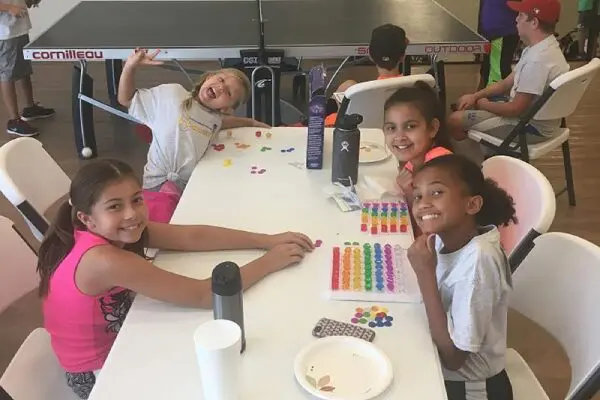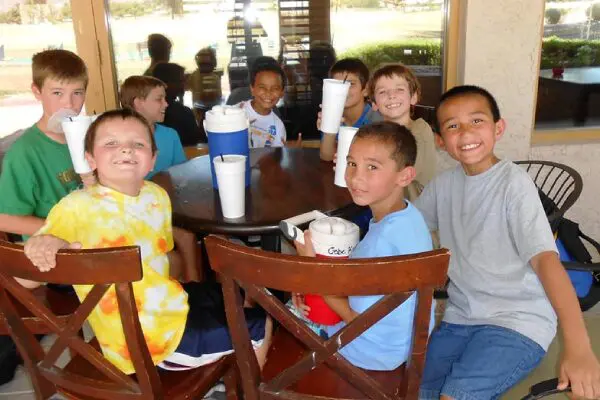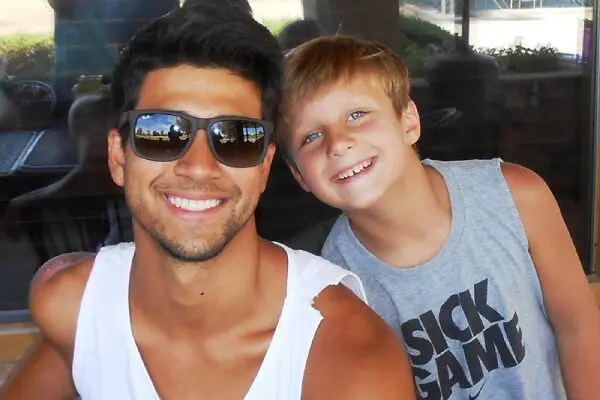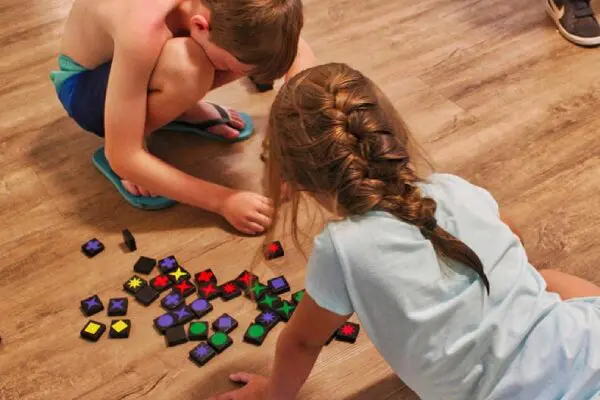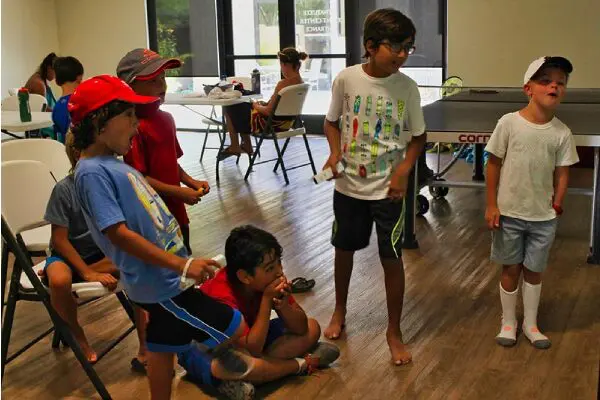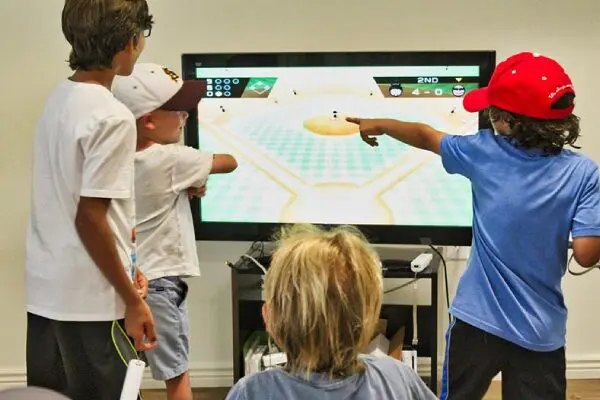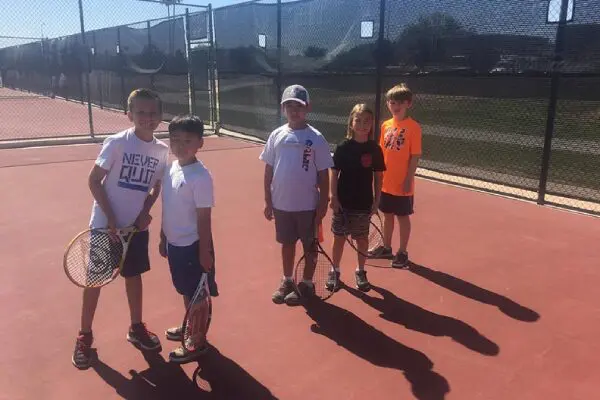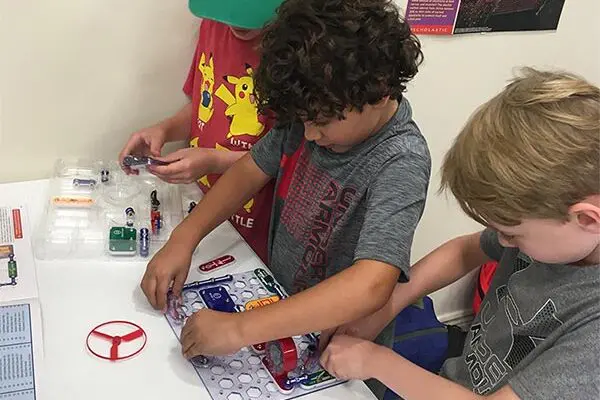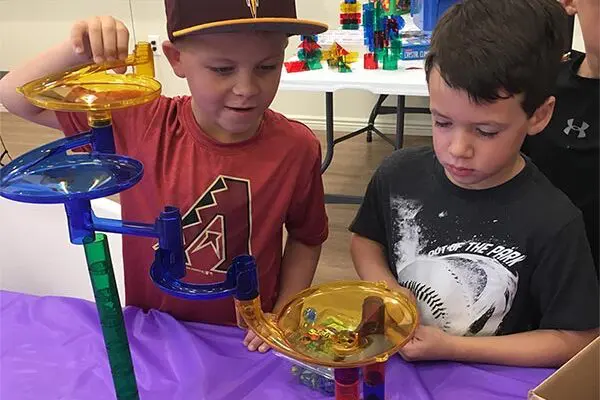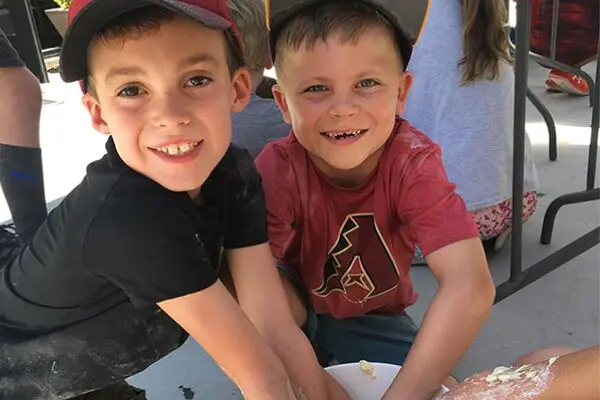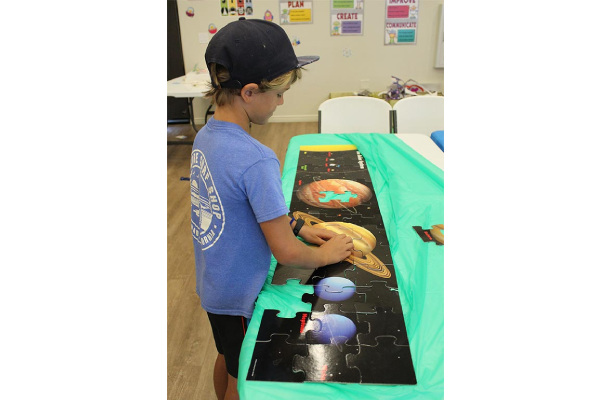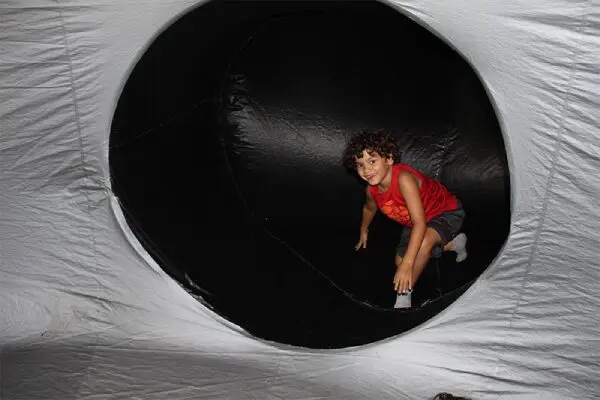Summer Camp
S.T.E.M & Sports Camp
- $254.50 per camper (May 28 - May 31: $203.60 per camper), 10% discount to add a sibling
- This camp provides a variety of STEM (Science, Technology, Engineering, Math) activities that spark imagination, creativity, and learning in a fun and relaxed environment.
- To encourage a healthy lifestyle, kids will also participate each day in sports and swim.
- The camp is designed for children between 6 – 12 yrs old.
- Campers will bring their own lunch, but snacks, juice, and drinks are available for purchase at the Center. However, an afternoon snack and drink is provided daily by the Center as well.
- Camp swimming is designed as a fun, recreational time for kids to enjoy our great pool. Lifeguards will be on duty.
- Cancellation policy: If a participant cannot participate in the STEM & Sports Camp he/she is registered for, a refund will be given if notice is given at least one week prior to the first day. A $50 cancellation fee will be applied if a cancellation is made less than one week prior to camp. No refunds will be issued after camp begins.
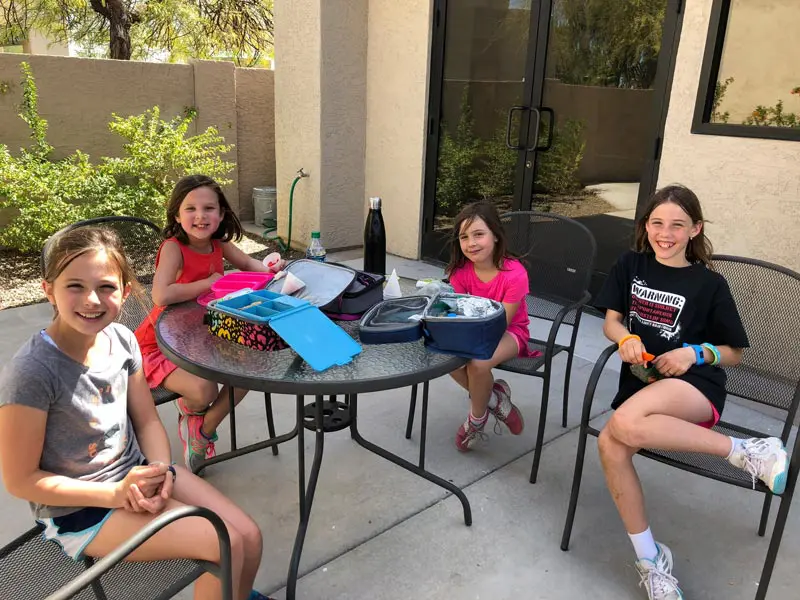
Schedule:
- 8:00 - 8:30 am Drop off
- 8:30 - 9:30 am STEM Session
- 9:30 - 10:30 am Sport Instruction
- 10:30 - 11:30 am STEM Session
- 11:30 - 12:15 pm Lunch/Games
- 12:15 - 1:00 pm STEM Session
- 1:00 - 2:00 pm Swimming
- 2:00 - 3:30 pm STEM Session
Summer Camp Weeks
Week 1: May 28 – May 31 (4 days - prorated)
Week 2: June 3 - June 7
Week 3: June 10 – June 14
Week 4: June 17 – June 21
Week 5: June 24 – June 28
Week 6: July 8 – July 12
Week 7: July 15 – July 19
Fall Camp Weeks
Week 8: September 30 - October 4
Cancellations may be made up to one week prior to the first day of camp. There is a $50 cancellation fee if a cancellation is made less than one week prior to camp. No refunds after camp begins.
*Preregistration is required.
Summer Camp Descriptions
WEEK 1: FORCES OF NATURE
Weather can be wacky! Become an expert on the forces of nature. Campers will learn about the forces of nature and how they change Earth’s environment. They will create volcanoes, build a tornado in a bottle, make a seismograph, and learn about the electricity spark of lightning.
WEEK 2: DINOZONE
It’s a full week of prehistoric activities. The world of dinosaurs will come to life through fossil hunts, mock digs, and engaging hands-on activities. We will explore the lives of dinosaurs and other prehistoric animals and the evidence that scientists use to learn about these ancient creatures.
WEEK 3: GALAXY EXPLORATION/ASU STAR LAB
Starlab is an inflatable, portable planetarium from the School of Earth and Space Exploration at Arizona State University. The stars will come alive in this unforgettable dome!
WEEK 4: iROBOT
Calling all engineers! Interested in coding or building robots? Come create recycled and task driven robots. Learn about the difference between robots and machines through hands on activities. Experiment with both the physical and digital world by programming ozobots. The guest speaker this week is from Arizona State University’s CUBIC.
WEEK 5: THE DEEP SEA
Deep-sea exploration is the investigation of physical, chemical and biological conditions on the seabed. It is considered a relatively recent human activity compared to the other areas of geophysical research, as the depths of the sea have been investigated only during comparatively recent years. The ocean depths remain a largely unexplored part of the planet and form a relatively undiscovered domain.
WEEK 6: DESTINATION IMAGINATION
This week’s focus is on creativity and problem solving. Campers will participate in drama, art, and improv. They will solve tasks and perform experiments such as an egg drop or marshmallow/toothpick structure activity. They will perform skits and plays. They will create a model of an invention that can solve an everyday problem. Campers will use their imagination to create, build, and solve.
WEEK 7: SPACE WEEK
Starlab is an inflatable, portable planetarium from the School of Earth and Space Exploration at Arizona State University. They will learn about phases, eclipses, and features on the moon’s surface. When exploring the earth, campers will learn about weather patterns, ocean currents, time zones, and current events.
Fall Camp Description
WEEK 8: 3, 2, 1 BLAST OFF
Starlab is an inflatable, portable planetarium from the School of Earth and Space Exploration at Arizona State University. Campers will learn about constellations and the conjunction of the Moon & Jupiter (October 2, 2023). They will also explore the Psyche Mission. The Psyche mission is a journey to a unique metal-rich asteroid orbiting the Sun between Mars and Jupiter. What makes the asteroid Psyche unique is that it appears to be the exposed nickel-iron core of an early planet, one of the building blocks of our solar system. For the first time ever, we are exploring a world made not of rock or ice, but of metal. The launch for the Psyche spacecraft is October 5, 2023. Lastly, campers will prepare for the Annular Solar Eclipse on October 14th.

